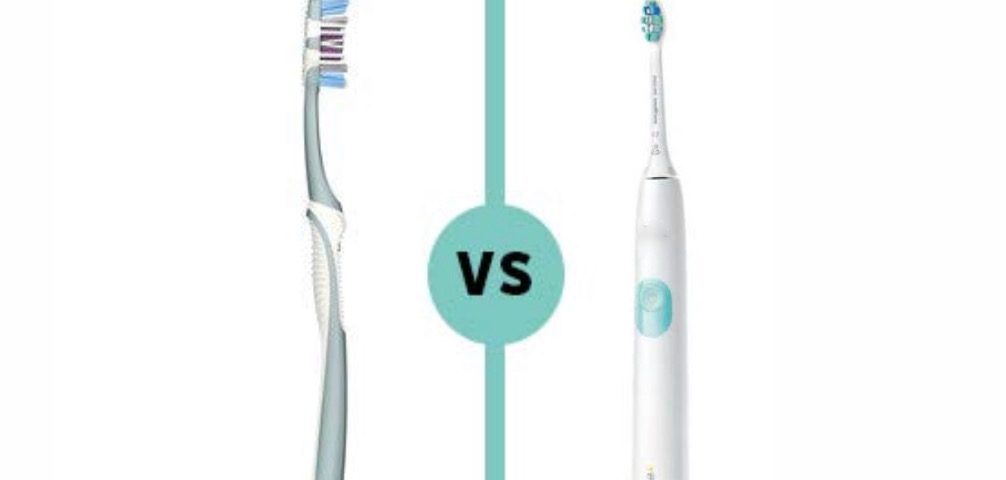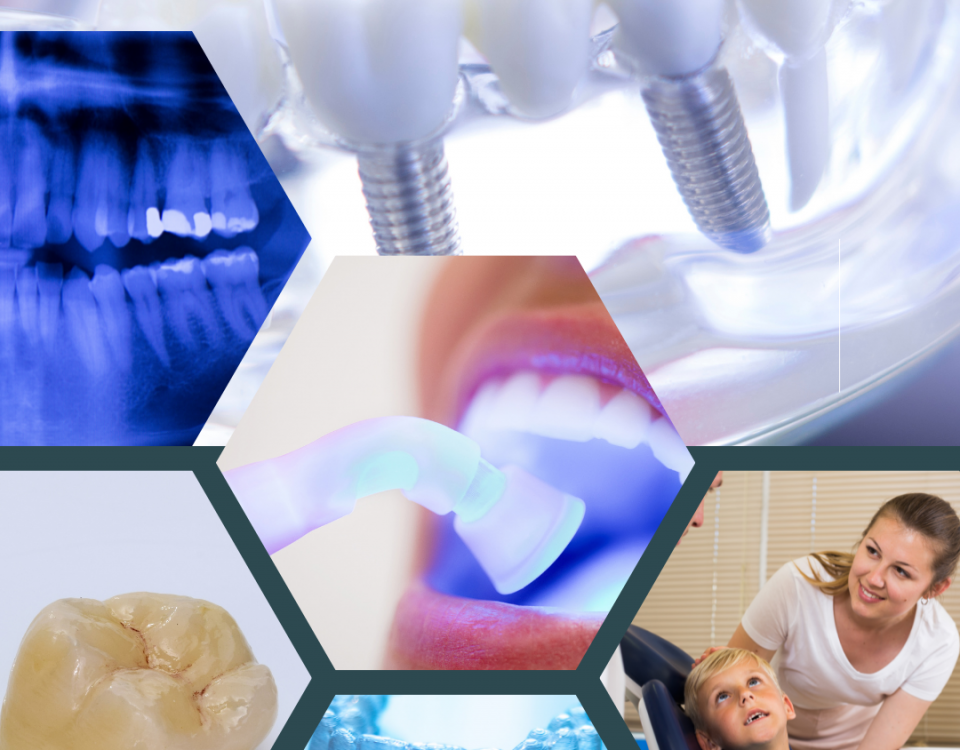
Stress and Oral Health. Our Guide:
May 24, 2021
How Often Should You See a Dentist?
June 16, 2021The question of the best type of toothbrush to use is a common one that we get at Langley Dental Care. Of course, many of our patients wonder about the choice between an electric vs manual toothbrush. Which provides better cleaning and helps to keep your teeth healthier? The answer depends on several factors.
Electric vs Manual Toothbrush – Which is Better?
Advantages of an Electric Toothbrush
An electric toothbrush can provide you with a thorough clean that is easier to use. In fact, some groups of people must use powered toothbrushes because they may not have the coordination or strength to properly brush with a manual brush. These groups include those with difficulty with their hands and children. Individuals with dental work such as braces may also benefit from the extra power of an electric toothbrush.
Depending on how you brush, an electric toothbrush could remove more plaque than a manual model. Therefore, if a dentist has told you that you have plaque or tartar buildup on your teeth, you may find switching to an electric brush a good choice.
All people who may not meet the full two-minute brushing requirement could benefit from an electric model with a built-in timer. These timers take the guesswork out of how long you need to brush, increasing their effectiveness for some who don’t time themselves when brushing.
What to Look for in an Electric Toothbrush
When getting an electric toothbrush, look for a model that is easy to use and fits into your budget. Keep in mind that electric toothbrushes are more expensive than manual models. Don’t forget to look at the price of replacement heads for the toothbrush when comparing models to your budget. You should also decide whether you want a rechargeable or battery-powered model. Sometimes battery-operated models cost less but require the added price of batteries to keep them running.
Also, look for models that meet the American Dental Association’s requirements. You should see a seal of acceptance from this group on the packaging. This seal ensures that the toothbrush will contribute to your oral health when used properly.
Advantages of a Manual Toothbrush
Manual toothbrushes may not have all the features of their electric counterparts, but they can be just as effective at removing plaque and cleaning your teeth when used properly. Manual toothbrushes cost much less than electric models and don’t need power sources. Plus, you can get one anywhere, from convenience stores to pharmacies.
The many designs of manual toothbrushes mean that you can likely find a model that you prefer to use. And, getting a toothbrush that you are comfortable with using is the most important part of your decision.
What to Look for in a Manual Toothbrush
When choosing a manual toothbrush, look for a brush that has soft bristles. These won’t cause damage to your gums or tooth enamel. Plus, find a design that has a comfortable handle. As with electric toothbrushes, look for a model accepted by the American Dental Association. Children and those with smaller mouths may need brushes with small heads. You can usually find kids’ models with this design.
How to Best Use Your Toothbrush of Choice
Using your toothbrush appropriately matters more than the type of brush you choose. In fact, both manual and electric models will remove plaque and food particles, thus protecting your teeth from decay and your gums from gingivitis.
Good oral hygiene starts with proper brushing methods. These include:
- Using a soft-bristled brush
- Holding the brush at a 45-degree angle to your teeth
- Using gentle pressure when brushing
- Brushing for two minutes, twice a day
- Use circular motions to clean the outside and inside of your teeth
- Brush with short strokes when cleaning the biting surfaces
- Gently brush the gum tissue when brushing your teeth
- Follow up brushing with flossing between every tooth
One way to help you thoroughly clean your teeth is by focusing on cleaning every surface of each tooth.
Caring for Your Electric vs Manual Toothbrush
Another important aspect of the type of toothbrush you use and how well it cleans your teeth is how you will care for it. First, plan on replacing a manual toothbrush or electric brush head every three months. Also, replace the brush after you’ve had an infection or whenever you notice the bristles becoming frayed. Worn bristles do not clean as well as fresh ones.
Always thoroughly rinse the brush after use and allow it to air dry upright. If you store your toothbrush in the bathroom, you may want to sanitize it with an alcohol-based mouthwash or hydrogen peroxide to remove bacteria the bristles may have picked up from the room.
Never share your toothbrush with anyone. Doing so can introduce bacteria that could cause illness or infections.
Dental Care Requires More Than Brushing Your Teeth
To ensure that you keep your teeth healthy, don’t stop at brushing. Also, floss at least once or twice a day to remove food from between your teeth that could contribute to decay. Use fluoride-based toothpaste to strengthen the teeth and prevent cavities. If you have sensitive teeth, talk to your dentist about specific products that you may need to use to reduce discomfort in your mouth.
Dental care also requires twice-yearly visits to the dentist. These dental exam visits every six months give the dentist a chance to keep tabs on your oral health and treat problems such as tooth decay or gingivitis in their earliest stages before they cause serious pain or damage.
Your semi-annual dental visits should also include professional cleanings. These cleanings allow for deeper cleaning and removal of plaque and tartar above and below the gumline. With these cleanings, you can maintain a healthier smile and fresher breath.
Get Dental Cleanings, Exams, and Other Services from Langley Dental Care in Charlotte, NC
Regardless of the type of toothbrush you use, you need to supplement your daily brushing and floss with regular professional care. Schedule your cleanings, exams, and other dental services with us at Langley Dental Care in Charlotte, NC. Contact us today for an appointment or to get more information about us.



